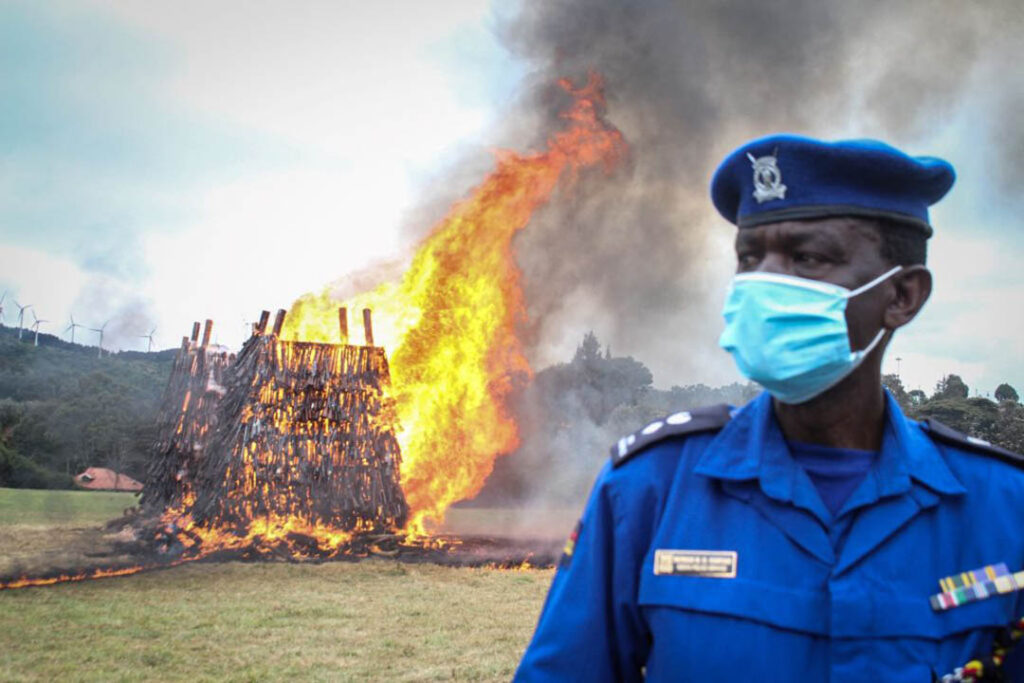ADF STAFF
Authorities in Liberia, Tanzania and Togo will work with United Nations officials throughout September to get illicit small arms and light weapons out of circulation.
The U.N. Office for Disarmament Affairs (UNODA) is collaborating with the three countries this year in support of the African Union’s “Silencing the Guns” initiative, which is part of the AU’s Agenda 2063. Signed in 2013, the agenda represents a 50-year Pan-African vision of an “integrated, prosperous and peaceful Africa, driven by its own citizens, representing a dynamic force in the international arena,” according to the AU.
The “Silencing the Guns” initiative is among 15 programs the agenda envisions. Others include cybersecurity, a continental space strategy, an African passport for the free movement of people, and the establishment of the African Continental Free Trade Area, which took effect in May 2019.
“Silencing the Guns” means ending wars, civil conflicts and gender-based violence, and preventing genocide, according to the AU.
The goal would seem daunting on a continent beset by a number of armed conflicts involving extremist groups, militias, armed bandits, and other ethnic and military conflicts. Northern Nigeria, the Lake Chad Basin, Mali, Burkina Faso, northern Mozambique and Great Lakes Region nations all face intractable armed conflicts.
Many, especially those in the Sahel, are fueled by the unfettered spread of small arms and light weapons. Since 2017, the AU has made September “Africa Amnesty Month for the surrender and collection of illicit small arms and light weapons,” which offers nations a modest and attainable way to reduce the proliferation of weapons and violence.
The AU originally intended for its “Silencing the Guns” initiative to run through 2020. By that year’s end it was clear the goal would not be met, so the deadline was extended through 2030. Some observers consider that date challenging as well.
“Cynics are already predicting that this won’t be met, given the trend of insecurity the continent faces,” wrote Liesl Louw-Vaudran, a senior researcher at South Africa’s Institute for Security Studies, in June 2022. “This includes the spread of terrorism and violent extremism, a resurgence in coup d’états, resource-linked instability and conflicts in areas like the Great Lakes Region, and intra-state conflicts such as in South Sudan, Libya, Ethiopia and Cameroon.”
The weapons amnesty program, however, offers an opportunity for measurable — if modest — impact. Burkina Faso, the Central African Republic, Madagascar, Sudan and Zambia participated in the first amnesty month in September 2017. In 2020, UNODA helped seven countries participate: Burkina Faso, Cameroon, the Central African Republic, Côte d’Ivoire, the Democratic Republic of the Congo, Ethiopia and Kenya.
Last year, UNODA supported participation from Madagascar, Niger and Uganda. The effort stretched into April 2022, at which time 1,497 weapons were destroyed in a public event, according to Africa Renewal, a U.N. publication.
Ivor Richard Fung, deputy chief of UNODA, Conventional Arms Branch, told Africa Renewal in 2020 that civilians hold 85% of small arms and light weapons worldwide. In Africa, civilians own more than 40 million such weapons, and few are licensed.
Fung said the amnesty targets small and light weapons, which includes all types of handguns, muskets, shotguns, assault rifles and conventional rifles, and ammunition.
The amnesty campaign typically includes publicizing the danger of small arms trafficking, pledging not to prosecute those who come forward during September, collecting the weapons and destroying them.
Some of the larger aspects of the “Silencing the Guns” program will continue to be a challenge. COVID-19 and the continent’s array of complex conflicts will prove difficult to overcome, especially given the AU’s inability to circumvent the sovereignty of its member states, Louw-Vaudran wrote. However, to add clarity to the effort, the AU Assembly in February 2022 adopted a monitoring and evaluation framework that divides the work into economic, legal, political and social categories. An implementation plan is being developed.
“The danger of relying too much on frameworks, documents and committees is that ordinary citizens will expect to see concrete results,” Louw-Vaudran wrote. “Africans want to see a more peaceful and prosperous continent by the end of the decade, short of any explanations. This is clearly beyond the scope of what the AU and its organs and institutions can deliver if a new way of managing peace and security isn’t adopted.”

